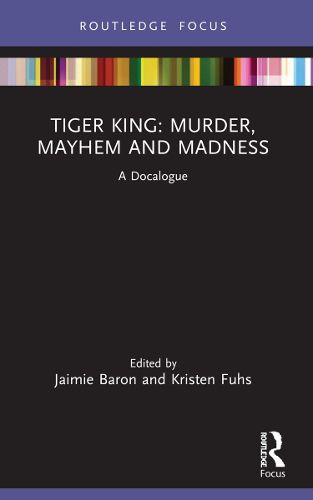Readings Newsletter
Become a Readings Member to make your shopping experience even easier.
Sign in or sign up for free!
You’re not far away from qualifying for FREE standard shipping within Australia
You’ve qualified for FREE standard shipping within Australia
The cart is loading…






The third volume in the Docalogue series, this book explores the significance of the documentary series Tiger King: Murder, Mayhem and Madness (2020), which became 'must-see-TV' for a newly captive audience during the global Covid-19 pandemic.
The series - a true-crime, tabloid spectacle about a murder-for-hire plot within the big cat trade - prompts interesting questions about which documentaries become popular in particular moments and why. However, it also raises important questions related to the medium specificity of documentary in the streaming era, as well as the ethics of both human and animal representation. By combining five distinct perspectives on the Netflix documentary series, this book offers a complex and cumulative discourse about Tiger King's significance in multiple areas including, but not limited to, animal studies, queer theory, genre studies, labor relations, and digital culture.
Students and scholars of film, media, television, and cultural studies will find this book extremely valuable in understanding the significance of this larger-than-life true-crime documentary series.
$9.00 standard shipping within Australia
FREE standard shipping within Australia for orders over $100.00
Express & International shipping calculated at checkout
The third volume in the Docalogue series, this book explores the significance of the documentary series Tiger King: Murder, Mayhem and Madness (2020), which became 'must-see-TV' for a newly captive audience during the global Covid-19 pandemic.
The series - a true-crime, tabloid spectacle about a murder-for-hire plot within the big cat trade - prompts interesting questions about which documentaries become popular in particular moments and why. However, it also raises important questions related to the medium specificity of documentary in the streaming era, as well as the ethics of both human and animal representation. By combining five distinct perspectives on the Netflix documentary series, this book offers a complex and cumulative discourse about Tiger King's significance in multiple areas including, but not limited to, animal studies, queer theory, genre studies, labor relations, and digital culture.
Students and scholars of film, media, television, and cultural studies will find this book extremely valuable in understanding the significance of this larger-than-life true-crime documentary series.